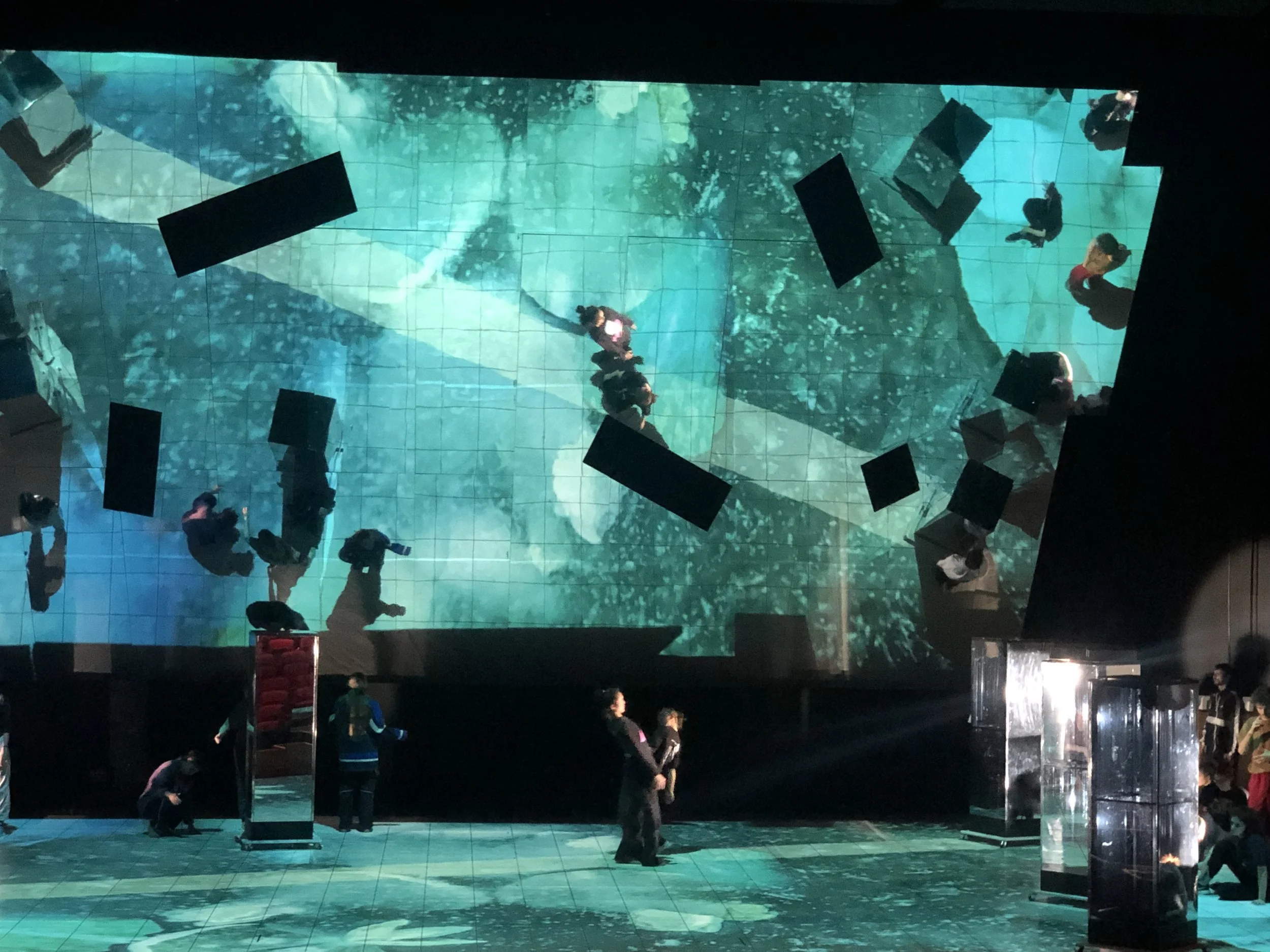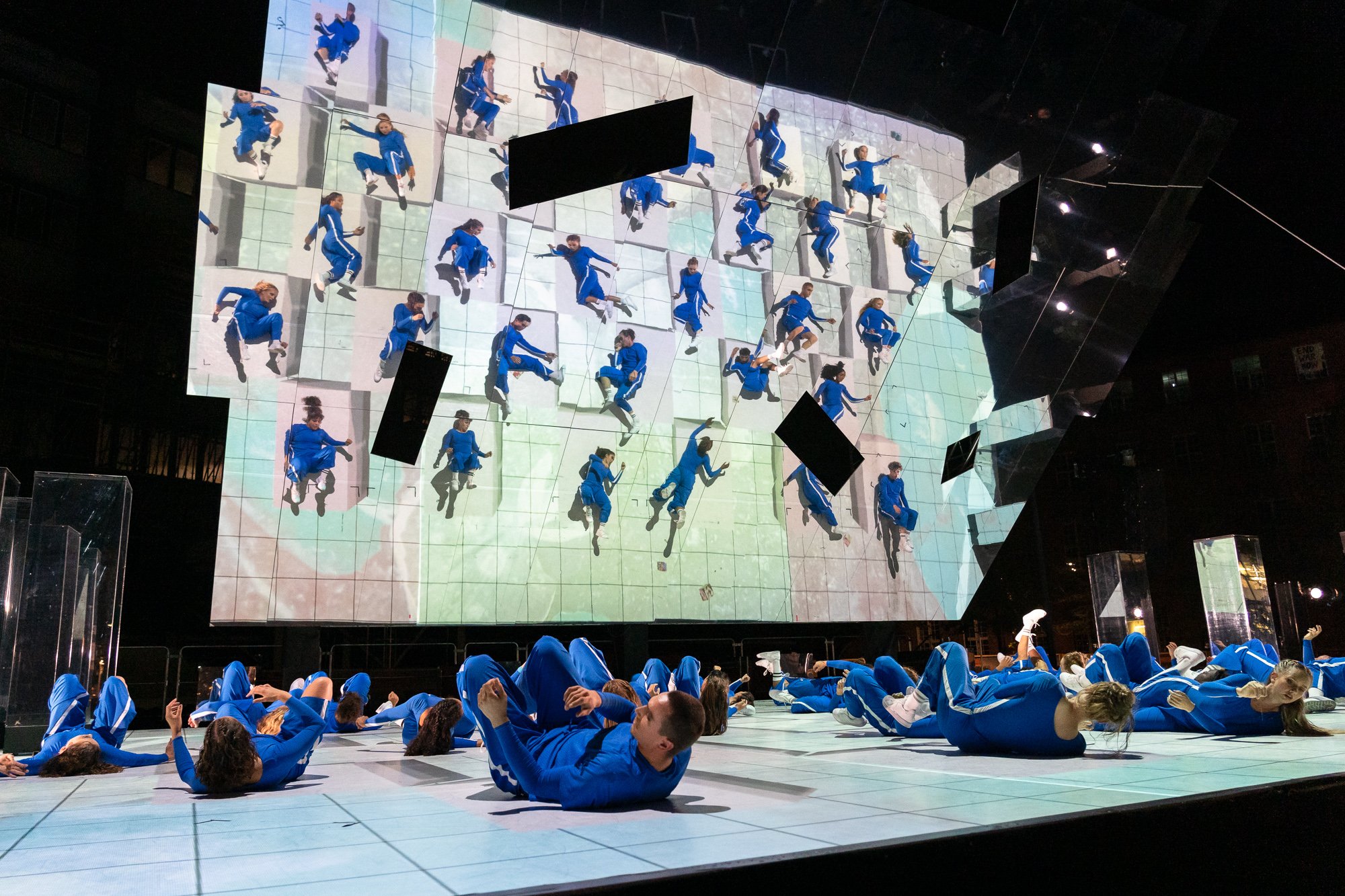
PEOPLE POWER PARTNERSHIP
-
The project at its core revolves around the multifaceted concept of the mirror, a symbol rich in history and laden with diverse interpretations, including notions of self-encounter, self-knowledge, fractured identity, reflection, vanity, and much more. The mirror has been an integral part of European literature since antiquity, and its significance has evolved over time.
In this digital age, where online interactions and echo chambers increasingly define our lives, we delve into the question of what happens when we shape a different world for ourselves. A world that's better, freer, and tailored to our desires. Yet, we must consider for whom this world is better, and who dictates our freedom within it. Are we the architects of our own online experience, or are we unwittingly confined to digital bubbles through tracking methods?
The term "metaverse" emerged two decades ago in Neal Stephenson's novel "Snow Crash." In 2022, the metaverse is a tangible concept, marked by the likes of Mark Zuckerberg renaming Facebook to Meta and the proliferation of virtual worlds in games like Roblox, Second Life, Fortnite, and Minecraft. However, the extent of its existence and its integration with technologies such as 5G, augmented reality, artificial intelligence, and the cloud remain subjects of debate.
The metaverse promises freedom, a safer world, and profound connectivity. In an age where digital interactions have proven their potential during the pandemic, the allure of this new digital realm is evident. But as we navigate these spaces, are we truly in control of our interactions, or are we guided by tracking methods and algorithms?
The project tackles three central themes: Hubris, Social Coercion, and Escapism. It explores the consequences of entering the metaverse with different motivations, confronting a blend of familiar and new experiences. The decisions made within this digital realm, influenced by emotions and human nature, shape the outcome, with some choosing to remain while others opt to return to the analogue world.
The project is a testament to the power of interdisciplinary collaboration, as it invites participants to explore the metaverse through dance, music, and projection, questioning the boundaries between the digital and analogue worlds and celebrating the freedom to decide one's own path.
-
Dance serves as the universal language that binds the project together. It unites a diverse group of 100 dancers, each hailing from different countries, cultures, and dance backgrounds. The project celebrates this diversity, allowing each dancer to find their own unique expression within the choreography.
Choreographers Janis Putnins and Kien Trinh infuse the production with their distinctive styles and backgrounds, fostering a creative fusion. The unique stage design, viewed from above, adds a layer of complexity to the choreography and encourages both choreographers and dancers to explore new realms of movement.
-
Music, whether generated from virtual or analogue instruments, is explored in its virtual and real dimensions. The blurring lines between what is virtual and what is real in music provoke fascinating questions. The project aims to use technology to create new musical realities, combining analogue sounds, creativity, and technology to evoke emotions and moods.
-
Projection plays a crucial role in the project, challenging perceptions of space and reality. Voxels are used as both the basis for the digital world and as texture for video projections, creating a sense of virtual reality. The projection interacts with the stage action, influencing the dancers' movements and the audience's perception.
-
Directors: Sigrun Fritsch, Luka Marie Fritsch
Directors assistant: Cosima Dudel
Choreographers:Kien Trinh, Jānis Putniņš
Technical Support: Dani Vera, Sönke Ober, Dirk Ober, Laurenz Fritsch
Music: Tobias Schwab
Costume: Hilke vom Verra
Stage: Llorenç Corbella
Light - Laurenz Fritsch, Steffen Melch
Vide maintance - Leonie Fritsch, Janis Putnins
Technical director : Aaron GüthlinProject Leader: Matthias Rettner, Aktionstheater PAN.OPTIKUM
Project leader assistant : Adelė Ryliškytė









